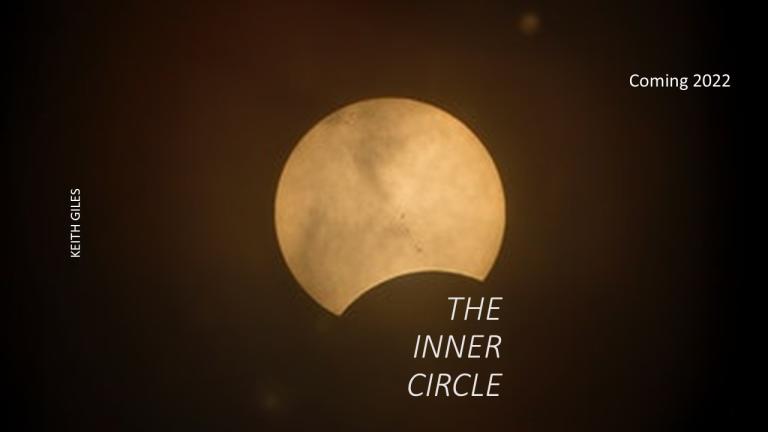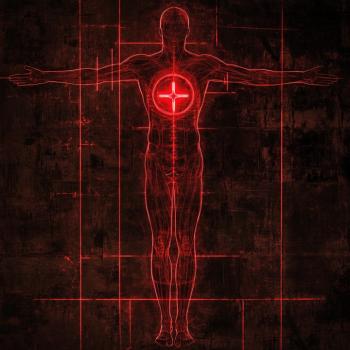Saying 2 in the Gospel of Thomas – which may actually be Saying 1 – invites us to ask questions and develop our inner desire for Truth, but warns us that the process will not necessarily be a pleasant one.
Simply put, if you’re not ready to have your assumptions challenged and surrender your need to be right about everything, your search for Truth is meaningless. This is where most of us get hung up, if we’re honest. We say we’re open-minded, we want to tell ourselves we’re honest seekers of Truth, but what most of us really want is to have our beliefs confirmed rather than challenged.
As long as we’re unwilling to admit up front that we might be wrong about everything, we cannot sincerely consider ourselves to be seekers of Truth. If we’re honest, we’ll concede that we have been wrong in the past, and that means we’re likely to be wrong about some things right now, and therefore capable of being wrong again in the future.
If we can let go of our need to be right, then and only then can we begin our search for Truth. Because, let’s face it, if you already have the Truth, there’s no need to seek for it, is there?
Our desire to know Truth must begin with an admission of ignorance. As Socrates famously said, “The only true wisdom is in knowing that you know nothing.” So, let us begin our journey by confessing our ignorance and embracing the great Mystery of God as an endlessly unfolding discovery of a Being beyond our feeble imaginations.
As the saying here begins, “Let him who seeks not cease seeking until he finds…” and this is our biggest challenge: we give up the search too quickly. Too often we hear a sermon, or read a book, and accept the answers given to us by our spiritual gurus without question. But what Jesus urges us to do here is to keep an open mind, hold loosely to our beliefs and never allow the cement to dry on our beliefs. Let us “not cease seeking”, even when we think we have found the answers, there are always more things to know and more to learn as we grow, and mature, and allow ourselves to be transformed by the Truth that is higher, and wider, and longer, and deeper than we can possibly imagine.
How do we know when we have found Truth? Jesus says we’ll know we’ve found the Truth because “when [we] find [it], [we] will become troubled.”
Are you troubled by the Truth? Or does it comfort you? If the Truth you have received doesn’t at first trouble you, perhaps you have not yet known the Truth at all. Perhaps you have simply found a comforting lie that affirms all of your preconceived ideas about yourself and about God.
If the Truth is going to transform you, it must first trouble you and disturb your status quo.
Once you have been troubled by the Truth, then you will experience astonishment: “When he becomes troubled, he will be astonished,” Jesus says. And that sense of awe and wonder is what many of us are lacking in our spiritual experience today. Why? Because we believe we already know all the answers and have everything figured out. We are not astonished, we are immune to awe, we have no pervading sense of wonder or mystery when it comes to God.
Yet, how foolish can we be? How could we possibly encounter a Being that is beyond imagination – the One who dwells in unapproachable light; who spoke the Universe into existence, whose “name is too wonderful” for us to even speak – without falling to our knees in absolute astonishment and breathless wonder?
Do we have God in a box, or bound in a book? If so, what we have is not God. As St. Augustine said, “We can know what God is not, but we cannot know what God is. God is best known in not knowing God.”
Think about that: “God is best known in not knowing God.” Do you have this sense of the impenetrable mystery of God within your heart? Are you overwhelmed with the transcendent majesty of the Divine? When you think of God, do you imagine a Being whose very nature is too marvelous for our minds to contain? If not, then why not? Have you settled for a God who can be defined, explained, outlined and summarized within the narrow framework of your religious system? If so, then what you have may be understandable and describable, but the one thing you do not have is any idea who God actually is.
Once we embrace the boundless mystery of the Divine, then and only then can we begin our journey. We begin by seeking without ceasing. We continue by becoming troubled by what we find. We allow ourselves to be challenged, astonished, awed, and then we reach a place where we are consumed by the Great Mystery and enter a place of rapturous surrender where we find ourselves “seated with Christ in Heavenly places,” as the Apostle Paul puts it. This is where, as Jesus tells us here in Saying 2, we “reign over the all.” Please note, the phrase actually says: “…he will reign over THE all,” not that he will reign over all. Our spiritual epiphanies do not position us in hierarchical authority over other people. This is not what Jesus suggests here. When he tells us that those who ceaselessly seek Truth are troubled, and then astonished, the end result is that we become One with this Truth – with the Divine One – and in that moment we realize that we are connected to all things, even as all things are connected to us. To “reign over the all” is to realize that “the all” is all that there is, or ever was, or ever will be. There is no “us and them.” There is only “Us.”
Other translations of this Saying add “and having reigned he will rest” to the end of this sentence. To rest, in this context, is to accept the peace that comes from the realization that striving is useless, anxiety and fear are illusions, and our Oneness with God is unbroken. As the Apostle Paul encourages us: “Nothing will ever separate us from the love of God. Not trouble or hardship. Not persecution or famine. Not danger, nakedness or the sword. Not angels, nor demons, not the future, nor the past, nor any powers, or anything else in all Creation shall ever be able to separate us from the love of God that is for us in Christ.” [Rom. 8:35-39]
We are One with God in Christ: “God is love, and all who live in love live in God, and God lives in them.” [1 John 4:16]
This is the Truth that both troubles us, astonishes us and transforms us. It is the Truth that has no boundary – no beginning and no end – and it is the Truth that leads us to ultimate rest and an awareness of our Oneness with God, and all things, everywhere.














